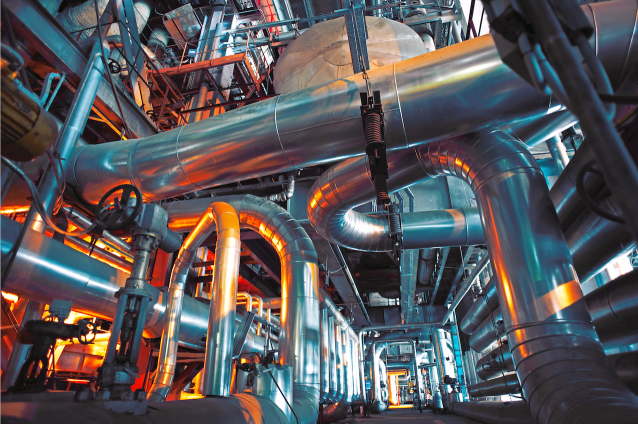Lithium-Ionen-Batterie: Die Energielösung der Zukunft
In recent years, the world has witnessed a rapid advancement in technology that has revolutionized the way we live and work. As our dependence on electronic devices continues to grow, there is an increasing need for portable and efficient power sources. Among the various options available, the lithium-ion battery has emerged as the power solution of the future.
Lithium-ion batteries are rechargeable devices that store and release energy through the movement of lithium ions between two electrodes – an anode and a cathode. This mechanism allows them to provide a high energy density, making them ideal for a wide range of applications, from mobile phones and laptops to electric vehicles and renewable energy storage systems.
One of the main advantages of lithium-ion batteries is their high energy-to-weight ratio. This means that they can store a significant amount of energy while remaining lightweight and compact. As a result, these batteries have become the preferred choice for portable electronic devices, where size and weight are crucial factors.
Moreover, lithium-ion batteries have a low self-discharge rate compared to other rechargeable batteries. This means that they can retain their charge for extended periods, making them suitable for applications where intermittent use is common, such as emergency backup power systems. Additionally, these batteries have a longer cycle life, allowing them to be recharged and discharged thousands of times without significant loss of capacity.
Furthermore, lithium-ion batteries offer fast charging capabilities, enabling users to quickly replenish their devices\’ power levels. This feature is particularly important in today\’s fast-paced world, where time is of the essence. With a lithium-ion battery, one can charge a smartphone or a laptop in a matter of minutes, ensuring uninterrupted usage throughout the day.
In recent years, there has been a growing interest in the use of lithium-ion batteries for electric vehicles (EVs). The automotive industry recognizes their potential to revolutionize transportation by providing a cleaner and more sustainable alternative to conventional fossil fuel-powered vehicles. Lithium-ion batteries offer higher energy density, longer range, and shorter refueling times compared to other battery technologies, making them a viable option for mass adoption of EVs.
Furthermore, as the world strives to reduce greenhouse gas emissions and combat climate change, renewable energy sources, such as solar and wind, play a crucial role. However, these sources are intermittent, and energy storage systems are needed to ensure a steady supply of electricity. Lithium-ion batteries offer an efficient solution for storing excess energy during periods of high generation and releasing it when demand is high, thus enabling the integration of renewable energy into the grid.

Despite these numerous advantages, lithium-ion batteries do have their limitations. One of the primary concerns is their safety. While incidents of battery fires and explosions are rare, they do occur due to factors such as manufacturing defects or improper usage. However, extensive research and development efforts are being made to enhance the safety of lithium-ion batteries and minimize these risks.
In conclusion, the lithium-ion battery has emerged as the power solution of the future. Its high energy density, compact size, long cycle life, fast charging capabilities, and suitability for various applications make it the preferred choice for portable electronic devices, electric vehicles, and renewable energy storage systems. As technology continues to evolve, advancements in lithium-ion battery technology will further enhance its performance and safety, paving the way for a more connected and sustainable future.
-
 Lithium iron phosphate (LiFePO4) is a type of rechargeable battery that falls under the category of lithium-ion batteries. Lithium-ion batteries are a broad term that includes several different types of batteries that use lithium ions to store and release energy. LiFePO4 batteries are known for their high energy density, long cycle life, and safety features. They are commonly used...Weiterlesen
Lithium iron phosphate (LiFePO4) is a type of rechargeable battery that falls under the category of lithium-ion batteries. Lithium-ion batteries are a broad term that includes several different types of batteries that use lithium ions to store and release energy. LiFePO4 batteries are known for their high energy density, long cycle life, and safety features. They are commonly used...Weiterlesen -
 Die Beliebtheit des Van-Lebens und des Nomadenlebens nimmt zu. Immer mehr Menschen geben ihr traditionelles Zuhause auf und gönnen sich stattdessen die Freiheit und das Abenteuer, das das Leben unterwegs mit sich bringt. Eine der Herausforderungen für diese abenteuerlustigen Nomaden besteht jedoch darin, eine zuverlässige und effiziente Stromversorgungslösung für ihre Wohnmobile zu finden. Das ist wo...Weiterlesen
Die Beliebtheit des Van-Lebens und des Nomadenlebens nimmt zu. Immer mehr Menschen geben ihr traditionelles Zuhause auf und gönnen sich stattdessen die Freiheit und das Abenteuer, das das Leben unterwegs mit sich bringt. Eine der Herausforderungen für diese abenteuerlustigen Nomaden besteht jedoch darin, eine zuverlässige und effiziente Stromversorgungslösung für ihre Wohnmobile zu finden. Das ist wo...Weiterlesen -
 Die Wahl des richtigen Lifepo4-Batterieherstellers in China kann angesichts der Fülle an verfügbaren Optionen eine entmutigende Aufgabe sein. Wenn Sie jedoch die folgenden Schlüsselfaktoren berücksichtigen, können Sie Ihre Suche eingrenzen und einen Hersteller finden, der Ihren Anforderungen am besten entspricht. Qualität: Bei der Auswahl eines Lifepo4-Batterieherstellers sollte Qualität für Sie oberste Priorität haben. Suchen Sie nach einem Hersteller, der...Weiterlesen
Die Wahl des richtigen Lifepo4-Batterieherstellers in China kann angesichts der Fülle an verfügbaren Optionen eine entmutigende Aufgabe sein. Wenn Sie jedoch die folgenden Schlüsselfaktoren berücksichtigen, können Sie Ihre Suche eingrenzen und einen Hersteller finden, der Ihren Anforderungen am besten entspricht. Qualität: Bei der Auswahl eines Lifepo4-Batterieherstellers sollte Qualität für Sie oberste Priorität haben. Suchen Sie nach einem Hersteller, der...Weiterlesen -
 In den letzten Jahren ist das Interesse an Elektrofahrzeugen (EVs) als Alternative zu herkömmlichen benzinbetriebenen Autos gestiegen. Eine der Schlüsselkomponenten, die Elektrofahrzeuge ermöglichen, ist die Lithiumbatterie. Diese Batterien haben mit ihrer hohen Energiedichte und langlebigen Leistung die Automobilindustrie revolutioniert und den Weg für eine sauberere und nachhaltigere Zukunft geebnet. ...Weiterlesen
In den letzten Jahren ist das Interesse an Elektrofahrzeugen (EVs) als Alternative zu herkömmlichen benzinbetriebenen Autos gestiegen. Eine der Schlüsselkomponenten, die Elektrofahrzeuge ermöglichen, ist die Lithiumbatterie. Diese Batterien haben mit ihrer hohen Energiedichte und langlebigen Leistung die Automobilindustrie revolutioniert und den Weg für eine sauberere und nachhaltigere Zukunft geebnet. ...Weiterlesen -
 Lithium iron phosphate battery, as a lithium-ion battery with lithium iron phosphate (LiFePO?) as the positive electrode material and carbon (usually graphite) as the negative electrode material, occupies an important position in the field of modern energy storage with its unique performance and advantages. This article will explore the working principle, main characteristics and technical details of lithium iron phosphate...Weiterlesen
Lithium iron phosphate battery, as a lithium-ion battery with lithium iron phosphate (LiFePO?) as the positive electrode material and carbon (usually graphite) as the negative electrode material, occupies an important position in the field of modern energy storage with its unique performance and advantages. This article will explore the working principle, main characteristics and technical details of lithium iron phosphate...Weiterlesen -
 Elektroroller haben sich in den letzten Jahren aufgrund ihrer Umweltfreundlichkeit und ihres Komforts zu einem beliebten Fortbewegungsmittel entwickelt. Einer der Schlüsselfaktoren, die zum Erfolg von Elektrorollern beigetragen haben, ist die Weiterentwicklung ihrer Batterien. In diesem Artikel werden wir die Fortschritte bei Batterien für Elektroroller untersuchen und wie sie die Branche revolutioniert haben. Der...Weiterlesen
Elektroroller haben sich in den letzten Jahren aufgrund ihrer Umweltfreundlichkeit und ihres Komforts zu einem beliebten Fortbewegungsmittel entwickelt. Einer der Schlüsselfaktoren, die zum Erfolg von Elektrorollern beigetragen haben, ist die Weiterentwicklung ihrer Batterien. In diesem Artikel werden wir die Fortschritte bei Batterien für Elektroroller untersuchen und wie sie die Branche revolutioniert haben. Der...Weiterlesen -
 Locomotive starter batteries play a crucial role in the operation of trains. These batteries are responsible for providing the initial power necessary to start the locomotive's engine. Without a reliable starter battery, trains would not be able to move efficiently and effectively. In this article, we will discuss the importance of locomotive starter batteries, how they work, and the various...Weiterlesen
Locomotive starter batteries play a crucial role in the operation of trains. These batteries are responsible for providing the initial power necessary to start the locomotive's engine. Without a reliable starter battery, trains would not be able to move efficiently and effectively. In this article, we will discuss the importance of locomotive starter batteries, how they work, and the various...Weiterlesen

